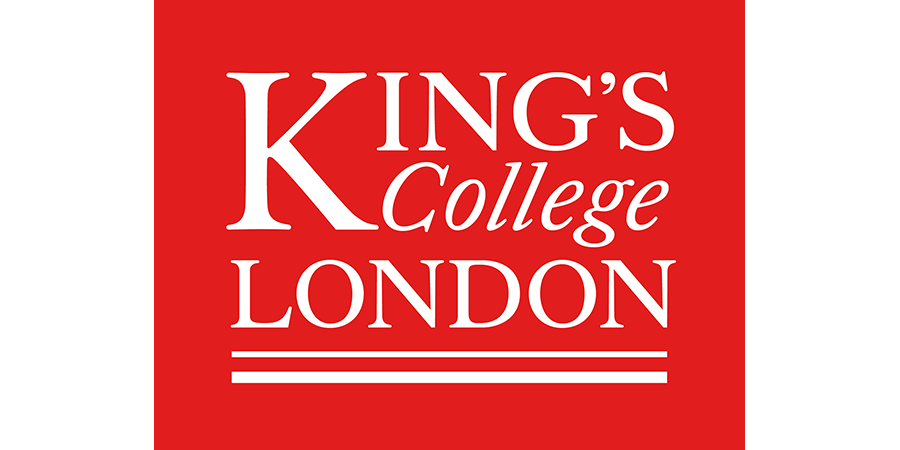4-Year (Funded) PhD Demonstrator Studentship: Investigating the Oxytocin System as a Potential Therapeutic Target in Patients with Rare Hypothalamic Disorders and Healthy Controls
King's College London - Institute of Psychiatry, Psychology & Neuroscience
| Qualification Type: | PhD |
|---|---|
| Location: | London |
| Funding for: | UK Students |
| Funding amount: | Only home students are eligible. Students will be funded for 4 years full time, including home tuition fees, annual UK Research Institutes-equivalent stipend (£22,780 for 2025/26), & an allowance of £5K for consumables, research and travel costs |
| Hours: | Full Time |
| Placed On: | 1st August 2025 |
|---|---|
| Closes: | 19th August 2025 |
October 25 start date
The overarching aim of the project is to investigate the oxytocin system in patients with rare hypothalamic disorders (craniopharyngioma, septo-optic dysplasia), who often present with neurodevelopmental deficits associated with Autism Spectrum Disorder and hyperphagia, and in healthy controls. We will be using a range of methods, including behavioural phenotyping, cognitive assessments, neuroimaging (EEG and/or fMRI), oxytocin quantification in plasma/saliva, and pharmacological interventions.
Part 1 involves the continuation and completion of an ongoing MRC-funded clinical study (Ethics approval: West Midlands – Solihull Research Ethics Committee of the NHS HRA ethics committee (23/WM/0104)). This involves the assessment of neurobehavioural and neurocognitive profiles (focusing on social cognition), medical profile and the quantification of plasma and salivary oxytocin in children/adolescents with craniopharyngioma and septo-optic dysplasia (recruited from 4 participating NHS Paediatric services, including KCH), and age- and gender-matched healthy controls.
Parts 2 and 3 are under development. Part 2 will involve a targeted neuroimaging (EEG and/or fMRI) intervention study with a subsample of children with craniopharyngioma and healthy controls. Part 3 will involve an intervention neuroimaging study (EEG and/or fMRI) in healthy controls, aiming to illuminate the mechanisms through which intranasal oxytocin affects brain function.
Demonstrators are expected to spend 144 hours per annum on education activities as Graduate Teaching Assistants (GTAs) (e.g., leading seminars and practicals, assessment and feedback), including hours for preparation (e.g., to lead a seminar) and directly related compulsory professional development. They may do more than the minimum 144 hours per annum. Hours worked on education activities beyond 144 hours in an academic year are paid according to KCL’s standard rates for GTA teaching.
Applicants must complete and submit an online admissions application, via the admissions portal (accessed via the 'Apply' button above) by midnight (23:59 GMT), 19th August 2025.
On the ‘Choosing a programme’ page, please select (Neuroimaging) Research MPhil/PhD (Full-time).
More information on the department and the programme is available at the departmental prospectus page here:
https://www.kcl.ac.uk/neuroscience/about/departments/neuroimaging
https://www.kcl.ac.uk/study/undergraduate/courses/neuroscience-and-psychology-bsc
In your application, you will be asked to include:
- Academic Transcripts - where applicable, academic transcripts must be submitted with the online admissions application
- Details of your qualifications - you will need to attach copies
- Details of previous employment - please include your CV
- A personal statement describing your interests and why you wish to apply for this project. Please also outline your teaching skills. Please include this as an attachment rather than using the text box.
- Academic References – all admissions applications require one supporting reference. If the applicant is relying on their referees to submit a reference directly to the College after they have submitted their admissions application, then the applicant must ensure that (1) their chosen referee is made aware of the funding deadline (i.e. 7 days from application deadline) and (2) that the reference needs to be sent from an institutional email address.
In the Funding section, please tick box 5 and include the following reference: (YP-Neurohyp-2025)
Please note there is no need to complete the Research Proposal section in your application as the project has already been set.
You are welcome to email Dr. Yannis Paloyelis (Yannis.Paloyelis@kcl.ac.uk) for more information regarding the project and studentship.
If you have any queries regarding the application process, please contact the Education support team at ioppn.pgr@kcl.ac.uk.
References must be received by the deadline for the applicant to be eligible.
Only shortlisted applicants will be contacted.
Advert information
Type / Role:
Subject Area(s):
Location(s):









